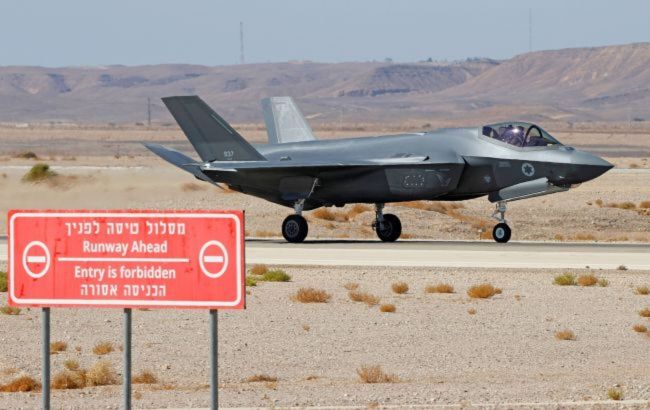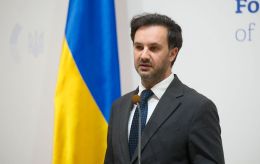Britain to join NATO nuclear air mission with new F-35A jets
 Illustrative photo: F-35 fighter jets (Getty Images)
Illustrative photo: F-35 fighter jets (Getty Images)
The United Kingdom is taking a significant step in strengthening its defense capabilities by joining NATO’s nuclear mission with state-of-the-art F-35A fighter jets capable of carrying nuclear weapons, according to CNN.
UK Prime Minister Keir Starmer is set to announce the purchase of 12 fifth-generation F-35A fighter jets from the US during the NATO summit on Wednesday, June 25. These nuclear-capable aircraft will strengthen the UK's nuclear potential and mark a major shift in its strategic posture.
Starmer will use this announcement to call on NATO allies to invest more in collective defense:
"The UK’s commitment to NATO is unquestionable, as is the alliance’s contribution to keeping the UK safe and secure," Starmer will say, according to Downing Street.
This move signals a significant change in the UK’s nuclear doctrine. Until now, London relied solely on its sea-based deterrent, Trident-armed submarines. Joining NATO’s nuclear sharing mission with dual-capable aircraft (DCA) sends a strong message to both allies and adversaries.
Starmer emphasized that in today’s era of global instability, "we can no longer take peace for granted."
The F-35A, developed primarily by Lockheed Martin, is one of the most advanced fighters in the world. It excels in both air-to-air and air-to-ground combat, is stealth-capable, and operates in complex battlefield environments. It is also one of the most expensive combat aircraft currently in service.
According to the UK government, around 20,000 British jobs are supported by the F-35 program, with 15% of the jet’s components manufactured in the UK.
This announcement is part of the government’s broader defense strategy, including reforms of military capabilities in Scotland and plans to build new attack submarines aimed at enhancing readiness against potential Russian aggression.
Background: Russia's global threat
German Defense Minister Boris Pistorius recently warned that Russia may be capable of attacking NATO within a few years. Lithuanian President Gitanas Nausėda echoed the warning, stating that the Baltic states could be among the first targets in a future Russian offensive. Meanwhile, confidence in US security guarantees under NATO’s Article 5 has weakened among European leaders.

